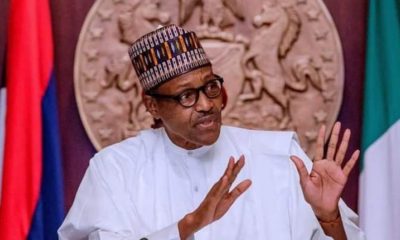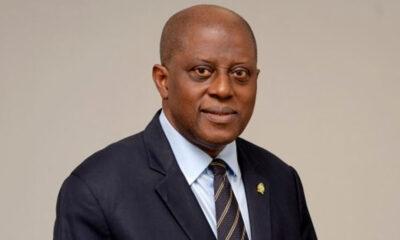Business
CBN introduces e-Naira to Nigerian tertiary institutions

CBN introduces e-Naira to Nigerian tertiary institutions
The Central Bank of Nigeria (CBN) has introduced a digital currency called e-Naira to Nigerian tertiary institutions.
This is to enable members of the academic environment to offer better payment prospects in retail transactions when compared to cash payments and to enable students to pay their school fees through e-Naira.
The Branch Controller of CBN in Jos, Plateau State, Mrs. Tinat Esther Catherine, who disclosed this during a courtesy call on the Vice-Chancellor, University of Jos, Professor Tanko Ishaya, said Nigeria is the first country in Africa to introduce the digital currency.
According to her, the e-Naira is a Central Bank of Nigeria-issued digital currency that provides a unique form of money denominated in Naira, adding that it serves as both a medium of exchange and a store of value, offering better payment prospects in retail transactions when compared to cash payments.
READ ALSO:
-
Five days to go, El-Rufai sacks two Kaduna monarchs
-
United plan €500m spending spree on Osimhen, others
-
U-20 World Cup: Fans back Flying Eagles against Italy
The branch manager disclosed that e-Naira can be used for a number of things, including the payment of school fees, adding that payments with e-Naira are seamless and the settlement is instant.
“Students are the targets of the CBN’s engagement in this regard, and the best place to engage students is in the university because they will take it around and introduce it to their peers outside the university. We are introducing it to the University of Jos because we want school fees to be paid via E-Naira.
“The whole world is going digital; hence, the CBN is also responding to the innovation by introducing a lot of cashless policies, one of which is the e-Naira. Incidentally, the Central Bank of Nigeria is the first to introduce e-Naira in Africa and the second in the world.
Also, CBN Consultant, Mr. Godson Izuchukwu, stated that the issue of an unreliable network for e-payment has been resolved as over 20 million Nigerians have keyed into the system.
Responding, the Vice Chancellor, Professor Tanko Ishaya,urged the team to work on making the use of the eNaira accessible to Nigerians outside the country as it could help facilitate easier international transactions.
He added that if the platform could help ease payments at the university, improve financial inclusion, and provide a source of income for the students, the university would consider adopting it.
CBN introduces e-Naira to Nigerian tertiary institutions
Auto
Carloha announces Chery SUV gift for NAPE Charity Golf Tournament winner

Carloha announces Chery SUV gift for NAPE Charity Golf Tournament winner
Ultimate winner of the forthcoming NAPE Charity Golf Tournament holding in Abuja will drive home Chery Tiggo 8 Pro, a superlative sport utility vehicle.
Carloha Nigeria, one of the major sponsors of the event, disclosed this in a statement issued in Lagos.
The golf tournament is scheduled to take place at the prestigious IBB Golf & Country Club, Abuja, on October 26, 2024.
Carloha, franchise holder and assembler of Chery vehicles in Nigeria, said its sponsorship of the tournament was part of its commitment to fostering sports development in the country.
Part of the statement read, “Chery is offering its flagship SUV, the Tiggo 8 Pro as the ultimate prize for any player who achieves a hole-in-one during the tournament.
“This event promises to be an unforgettable experience for golf enthusiasts and those passionate about positively impacting our community.”
It specifically noted that the highlight of the tournament would be the incredible hole-in-one winning feat attracting a prize of Chery Tiggo 8 Pro generously provided by Carloha without insurance premium coverage for the tournament.
This prize is said to underscore Chery’s support for sporting initiatives in Nigeria and reflect the brand’s passion for nurturing talent and promoting community engagement through sports.
Director of Sales for Carloha Nigeria, Mr. Joseph Omokhapue, said, “We are glad to be one of the major partners in the NAPE Charity Golf Tournament, and offering an amazing prize for the hole-in-one with Tiggo 8 Pro represents Chery’s dedication to supporting sports in Nigeria, as well as enhancing the excitement and competitiveness of the tournament, making it an event to remember.
“More importantly, this gesture is one of the many ways Carloha is contributing to the underprivileged in our society by associating with the NAPE Charity Golf Tournament.”
By participating in this prestigious event, Golfers have the chance to showcase their skills and also contribute to a worthy cause.
Proceeds from the tournament would go towards supporting local charities, creating a lasting impact on the lives of those in need, the statement added.
The Tiggo 8 Pro, according to the firm, is renowned for its luxury, cutting-edge technology, stylish design, dynamic performance, and it perfectly embodies Chery’s dedication to excellence for on and off-road experience.
The Tiggo 8 Pro features an elegant, high-tech electronic gearshift system that provides effortless and precise control, enhancing safety performance and ease of operation, adeptly tailored for the diverse terrains of Nigeria.
It urged golfers and sports enthusiasts to get ready to swing for success at the NAPE Charity Golf Tournament.
“We look forward to seeing you at the IBB Golf Country Club as we come together to make a difference, promote sports development in Nigeria, and celebrate the Chery brand,” it stated.
As part of its commitment to make vehicle ownership easy and affordable for all, Carloha Nigeria offers a remarkable 6-year warranty/200,000 kilometers, 6-year free service on all Chery vehicles, a flexible auto financing solution with the best price for all vehicles, and 24/7 services and parts support nationwide.
This ensures that owners can enjoy their Tiggo 8 Pro with confidence, knowing they have reliable support and service from Chery for years to come.
Auto
NNPC to establish 40 new CNG stations nationwide
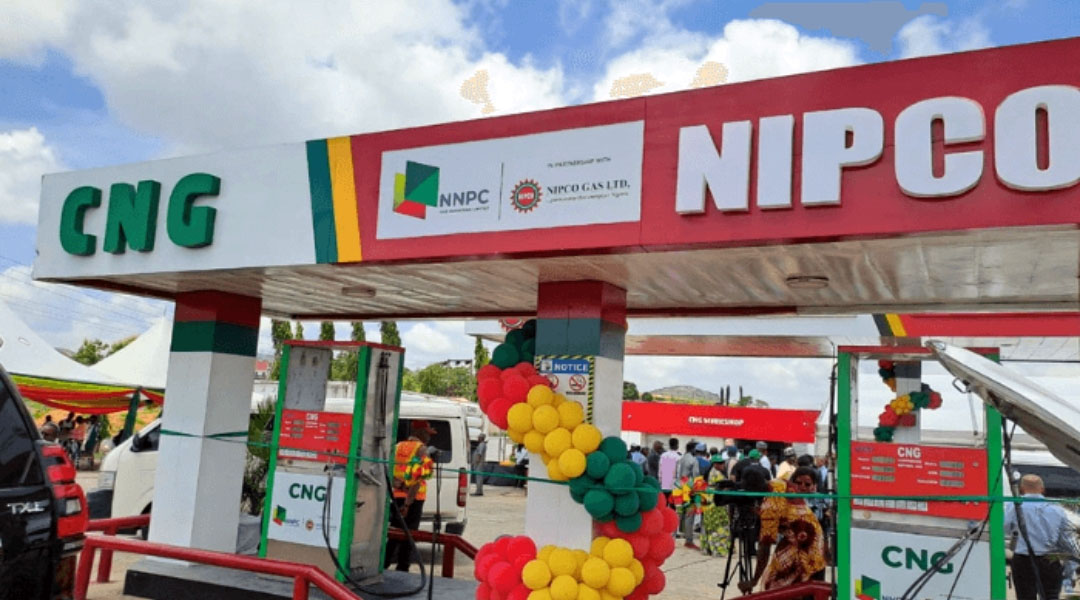
NNPC to establish 40 new CNG stations nationwide
The Nigerian National Petroleum Company (NNPC) has acquired equipment to establish 40 new Compressed Natural Gas (CNG) stations across the country, as part of efforts to expand CNG infrastructure.
This comes as the Federal Government aims to set up 100 CNG stations within six months.
Oluwagbemi Michael, Director of the Presidential CNG Initiative, revealed the plans during an event in Ogun State.
He noted that 12 CNG stations were set up in the past year, six in Abuja and six in Lagos, with further expansion underway.
READ ALSO:
- No more application fees for Lagos scholarship, bursary – Sanwo-Olu
- Lagos seals 352 churches, mosques, others for pollution
- Israel confirms killing Safieddine, likely successor to slain Hezbollah’s Nasrallah
This move follows concerns over the limited availability of CNG stations, which has slowed the adoption of CNG as an alternative to petrol.
Michael highlighted ongoing investments in infrastructure, including a recent N122bn funding for private companies involved in CNG distribution.
He also mentioned the government’s plan to distribute one million CNG conversion kits to commercial drivers, which is expected to increase demand and attract more investors to the sector.
Additionally, existing petrol stations are being upgraded to include CNG refuelling points, with 40 such upgrades planned by the NNPC.
NNPC to establish 40 new CNG stations nationwide
Business
MTN threatens to shut down services without tariff hike
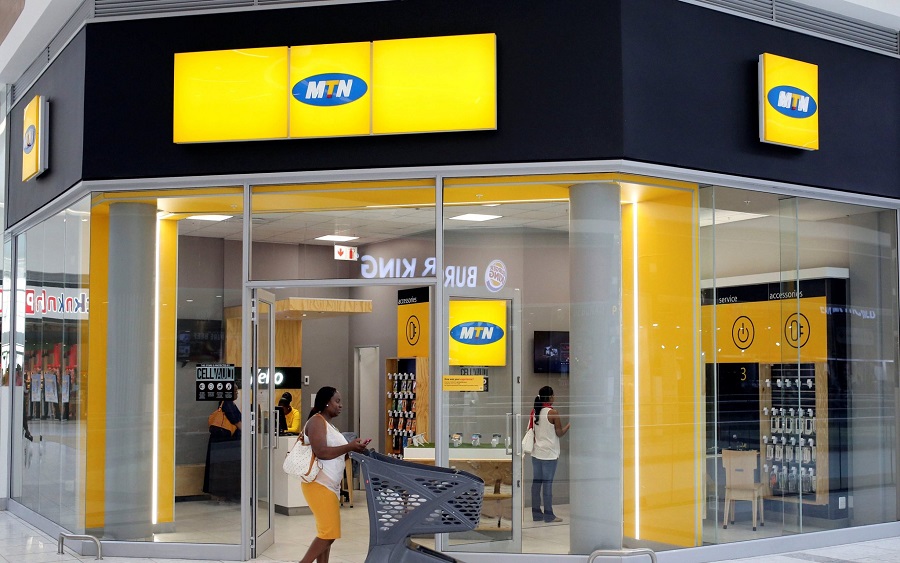
MTN threatens to shut down services without tariff hike
MTN Nigeria has warned of a potential shutdown if tariffs are not increased to address the rising operational costs that are threatening the profitability of the telecommunications sector.
During a tour of MTN’s facilities in Ibeju-Lekki, Lagos, MTN’s CEO, Karl Toriola, said the telecom sector has been facing significant financial losses and urgent measures are needed to reverse the trend.
Toriola pointed out that MTN, which currently has around 78 million subscribers, is operating on reserves accumulated over the past two decades, a situation he described as unsustainable.
READ ALSO:
- Air Force mourns death of 5 personnel in Plateau road crash
- VeryDarkMan wants Portable arrested over viral assault video
- Vinicius Jr will win Ballon d’Or, says Ancelotti
The company’s operating costs, especially diesel prices needed to power its base transceiver stations, have surged, adding pressure to its financial performance, he added.
The CEO stressed the importance of returning the telecom industry to profitability, warning that without a tariff hike, MTN might be forced to shut down operations.
“There should be no delusion; if the tariff doesn’t go up, we will shut down,” he said.
He noted that MTN, once one of the largest corporate taxpayers in Nigeria, has seen a decline in its tax contributions due to the financial challenges the sector is facing.
MTN threatens to shut down services without tariff hike
-

 News2 days ago
News2 days agoFIRS announces recruitment of young graduates
-

 metro3 days ago
metro3 days agoUpdated: Army says reports of COAS Lagbaja’s death fake news
-

 metro2 days ago
metro2 days agoOluwo chased me out when I visited him – Ooni (VIDEO)
-
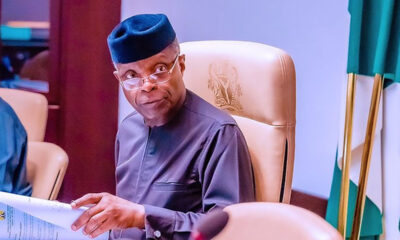
 News2 days ago
News2 days agoOsinbajo traitor, can’t talk about integrity – Reno Omokri
-

 metro2 days ago
metro2 days agoFani-Kayode: How my aide died in hotel after attending church
-

 Business1 day ago
Business1 day agoWe’re settling out of court with NNPC, others — Dangote
-

 metro2 days ago
metro2 days agoBREAKING : DSS replaces Tinubu’s chief security officer
-

 News2 days ago
News2 days agoYou can’t overrule Supreme Court on LG autonomy – Klinsmann tells Soludo



